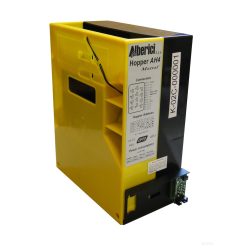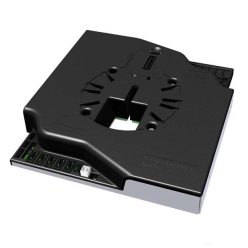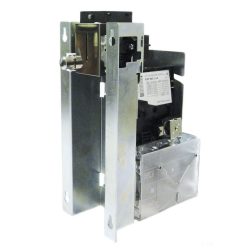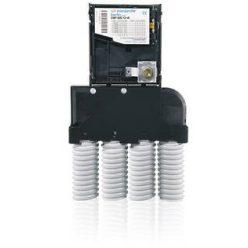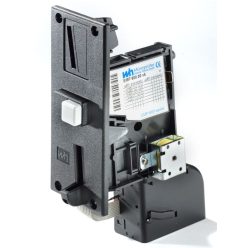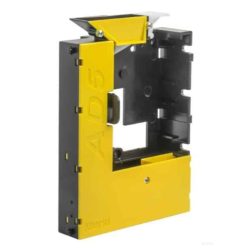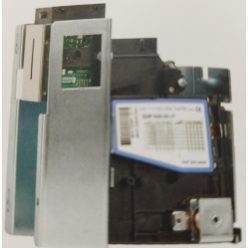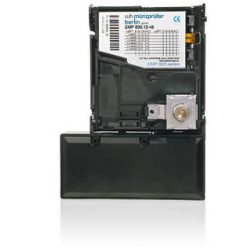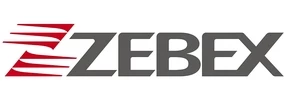Industrial coin sorters for multi-path cash handling with Alberici and WH Berlin
In this coin sorters category you will find industrial sorter modules that connect to modern coin validators and route accepted coins to separate outputs for good, reject or special handling. Manufacturers include Alberici and WH Berlin, allowing you to build reliable multi-path cash handling chains. The Hopper Alberici AH4 Discriminator STD provides high-speed payout and discrimination, while the WH Berlin 10-way sorter/ CCTALK HUB/ coin system controller can direct coins to up to ten different paths. The 3-way sorter for WH Berlin EMP800/850/890 validators and the 3-way sorter for Alberici validators help you separate good, reject and collection outputs in parking machines, kiosks and other unattended systems.
Coin sorters and multi-way diverters for secure, multi-path coin management
The coin sorters category brings together add-on modules that are installed between the coin validator and the hoppers in order to route coins to multiple destinations. These devices direct coins to different outputs while they are in motion, depending on whether they have been accepted, rejected or need special handling (for example, routing to a collection box or separate hopper). The range includes Alberici and WH Berlin sorters as well as matching mounting frames: the Hopper Alberici AH4 Discriminator STD, the WH Berlin 10-way sorter/ CCTALK HUB/ coin system controller, the 3+1-way sorter for WH Berlin EMP830 with tube connections, the 3-way sorter for WH Berlin EMP800/850/890 validators, the 3-way sorter for Alberici validators, and the various Chassis housings and coin validator frames that hold EMP validators and related modules.
These coin sorters are key components in the cash handling chains of parking payment machines, public transport ticketing kiosks, laundromat and car wash systems, as well as coin changers. Using 3-way or 3+1-way sorters you can separate good coins, reject or unknown coins and collection or payout paths. The WH Berlin 10-way sorter/ CCTALK HUB module goes even further, allowing you to define up to ten output paths so you can distribute cash between multiple hoppers, cash boxes and interim escrow units. The Hopper Alberici AH4 Discriminator STD provides high-speed coin payout on the dispensing side, working closely with Alberici validators and sorters.
Typical applications – where coin sorters make a real difference
Coin sorters are particularly useful wherever you need to treat incoming coins in different ways, for example to separate valid coins from suspicious or foreign ones, or to route tokens to a dedicated path. The 3-way sorter for WH Berlin EMP800/850/890 validators is designed to follow the validator's decision and send coins to good, reject or collection outputs, while the 3-way sorter for Alberici validators does the same job in Alberici-based systems. The 3+1-way sorter for WH Berlin EMP830 with tube connections is ideal when you want to send several denominations to different coin tubes or cash boxes in coin changers and payout systems.
Coin sorters can also be combined with escrow units and hoppers to build complex pre- and post-sorting systems. In such configurations the WH Berlin 10-way sorter/ CCTALK HUB/ coin system controller acts as the central distributor: coins coming from the validator first arrive at the sorter, and from there they branch out to hoppers, cash boxes, escrow units or reject paths. The Chassis "housing only" frames and the Chassis coin validator frame for WH Berlin manual reject ensure that the complete assembly can be mounted in a robust, service-friendly way behind the machine's front panel.
Technology benefits – industrial design and intelligent routing
One of the main advantages of industrial coin sorters is their high speed and precise, controllable routing of coins. Control signals are typically provided either by the coin validator or by the main controller, giving you flexibility to decide which denomination should go where. Through ccTalk or RS232 interfaces the entire coin system can report its status, coin flow and errors back to the controller, enabling features such as coin jam detection, anti-stringing and detailed statistics for maintenance and optimisation.
Dedicated coin sorters also have the benefit of mechanical compatibility with the validator modules they are designed for, eliminating the need for custom metalwork or improvised adapters. Factory-designed Chassis housings and frames match the hole patterns of EMP validators and associated units exactly. This speeds up installation and simplifies service work, because a faulty module can be swapped in minutes without dismantling the entire machine.
Drawbacks, design issues and operation
The downside of multi-way coin sorters is that they add mechanical and electronic complexity to your system. There are more moving parts and sensors, and maintenance requirements are higher than with a simple validator + hopper combination. When designing your machine you need to consider installation space, coin path geometry, service access and operating temperature, especially for outdoor or harsh environments. Long-term stable operation depends on regular cleaning, checking of wear surfaces and scheduling firmware updates where available.
From a commercial point of view, industrial coin sorters and their associated Chassis frames, hoppers, escrows and controllers represent a higher initial investment than basic cash handling sets. In return they help reduce disputes, optimise change levels and cut downtime. Local service capability in Budapest, European stock, scheduled deliveries, multiple shipping and customs options, post-delivery payment terms and invoicing in HUF or EUR all support the full project life cycle from design through deployment to long-term operation.
FAQ – coin sorters and diverters
What is the difference between a coin sorter and a simple coin validator?
A coin validator checks authenticity and denomination and usually provides only a single accept/reject output. A coin sorter, on the other hand, takes already validated coins and routes them to several outputs, for example to good, reject and collection paths or to multiple hoppers.
When should I use a 3-way sorter and when is a 10-way sorter justified?
A 3-way sorter is sufficient if you only need basic good/reject/collection separation or two hoppers plus a reject path. A 10-way sorter is the right choice when you want to feed several hoppers, cash boxes or escrow modules and implement more sophisticated cash management strategies inside the machine.
What do industrial sorters offer that low-cost, non-industrial devices lack?
Industrial sorters are built for higher speeds, continuous 24/7 use, advanced error detection (coin jams, anti-stringing), documented industrial interfaces and long-term spare part availability. These capabilities are generally missing from low-cost consumer-grade diverters.
Why is it important to use factory-designed Chassis frames and mounts?
Factory Chassis and validator frames provide precise mounting patterns, stable fixing and easy service access. This speeds up installation, reduces custom metalwork and allows you to remove and replace sorters or complete modules within minutes during service visits.

